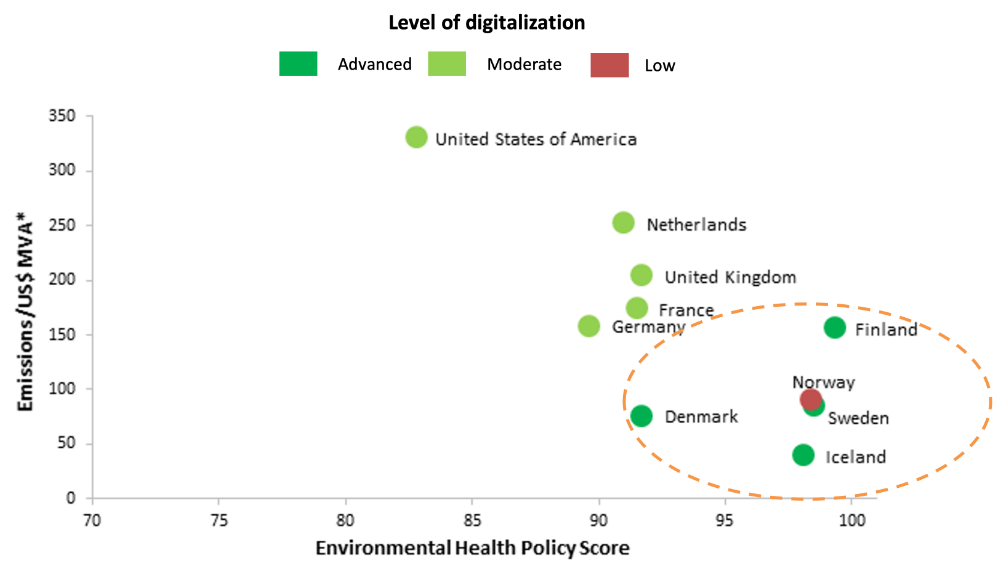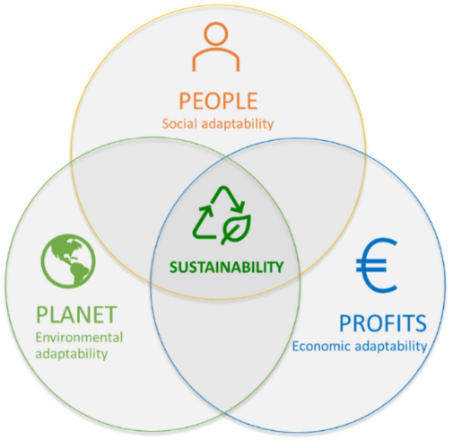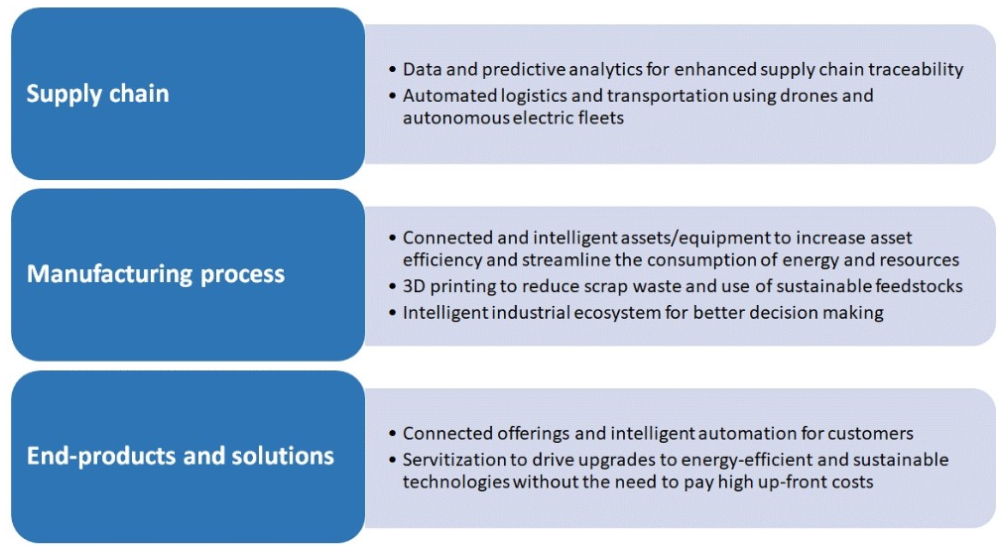November | 2021
Digitalization to play a vital role in driving manufacturers’ sustainability agenda, making green technology a paradigm for future manufacturing enterprises
Executive summary
According to data from Sustainable Brand Index 2021, the purchase decisions of 68-74% of Nordic consumers were affected by sustainability1. Moreover, the new generations prefer to use products that are more sustainably manufactured and distributed. Carbon footprint of products will hence be a key decision-making criterion for consumers. Thus, many companies have made sustainability and the shift to a ‘net-zero global economy’ their top priority. However, the road ahead is long and precarious.
Wipro is helping manufacturers globally in the adoption of technologies such as Industry 4.0, digital supply networks, intelligent assets, the industrial internet of things (IIoT), 3D printing, and a shift to data-driven intelligent industrial ecosystems.
Sustainability compliance platform
Manufacturing process monitoring
The manufacturing sustainability agenda is driven by policies and enabled by technology
According to an analysis by Wipro Insights, there are regional variations in manufacturing sustainability levels linked to policy support and digital maturity. Nordics manufacturing sector recorded lower emissions per US $ of manufacturing value-added, as compared to European counterparts and the US, bolstered by supportive government policies and advancement towards digitalization.

Source: Wipro Insights’ analysis based on data from United Nations Climate Change, World Bank, Yale Center for Environmental Law & Policy, and Nordic co‐operation
Note: The Environmental Health Policy score measures how well countries are protecting their populations from environmental health risks and is made up of four issue categories: Air Quality, Sanitation & Drinking Water, Heavy Metals, and Waste Management. *Manufacturing value added
For governments to further promote sustainability, they need to collaborate to create common reporting and measuring standards or benchmarks. For example, developing a common standard to report CO2 footprint as part of financial reporting for countries in the EU.
‘Triple Bottom Line’ approach to make sustainability a strategic priority
The essence of sustainability can be captured with the help of the ‘Triple Bottom Line’- a framework that directs organizations to commit to measuring their social and environmental impacts along with their financial performance, moving beyond the sole aim of generating profit.

Figure 2: Three Ps in Triple Bottom Line
Source: Wipro Insights
Manufacturing organizations that recognize the importance of the third P, i.e., ‘the planet’, would do well as concerted focus on this component could see a long-term positive impact on key business drivers
Enhanced brand value
Access to capital markets
Attract and retain talent
Digital and technology innovation will be key sustainability enablers
The move towards green manufacturing or sustainable engineering will certainly be driven by a cultural shift and, radical change management, along with buy-in from stakeholders across the organization – from the top -floor to the shop -floor. However, this can only be accelerated only with a focus on digital and technology advancements across the manufacturing life cycle — supply chain, manufacturing process, and end products and solutions.

Figure 3: Leveraging technology across the manufacturing value chain to drive sustainability
Source: Wipro Insights
Wipro’s Sustainable engineering approach
There are two kind of services that broadly classify the coverage of Sustainable Engineering:
Process led services: These are potentially material process transformation, as to the way things are manufactured or used and very often tied to process improvement initiatives. For example, waste energy recycling, alternate fuel, alternate material etc. Such transformations cost huge and usually have a long cycle to implement but have a lasting impact.
Technology (solution) led services: These are usually technology-based efficiency, optimization, monitoring solution implementations. Digital technologies like I4.0 & IOT, AI/ML, 3D printing, connectivity etc. help in creating platforms which drive product/process re-imagination, faster time to market; creating personalized user experiences and sustainable new business models.
Source: Wipro Insights
Sustainability led digital transformation with 3D printing
Leveraging IoT and cloud to make manufacturing organizations sustainable
'Green manufacturing: The Way forward'
Green manufacturing and sustainable engineering go hand-in-hand. If enterprises want to be in business, sustainability-led digital transformation is the only holistic approach that can be scaled and lead the #BusinessNXT journey.
Enterprises are still trying to re-organize and merge process- led services and technology- led services under one charter and drive sustainable digital transformation. Integrating digital solutions across the value chain is the way forward to survive and thrive. To achieve their sustainability objectives, manufacturers need to focus on three key areas:
Companies that do not embrace sustainable manufacturing practices could be at the risk of reputational damage and may gradually lose market share to more environmentally- conscious organizations. On the other hand, companies that are able to integrate sustainability, shall witness an improvement in overall business and financial performance and become resilient to sector disruptions.

Vinay Firake
Sr. Vice President & Managing Director – Nordics

Ulf Weibahr
Head of Manufacturing Consulting – Nordics
Co-author:
Siddhant Mehra, Manager, Manufacturing Insights
Contributions:
Deep Arora, Senior Analyst, Insights
Vatsala Srivastava, Manager, Writing & Editorial, Insights
Endnotes
1) The story of (un)credible sustainability communication in 2021, Sustainable Brand Index
2) 2021 Global 100 ranking, Corporate Knights
3) The world’s first fossil-free steel ready for delivery; SSAB to deliver fossil-free steel to Mercedes-Benz, SSAB
4) Beyond Supply Chains - Empowering Responsible Value Chains, World Economic Forum
5) Nordic Sustainable Debt State of the Market 2020, The Climate Bonds Initiative
6) Most millennials would take a pay cut to work at an environmentally responsible company, Fast Company